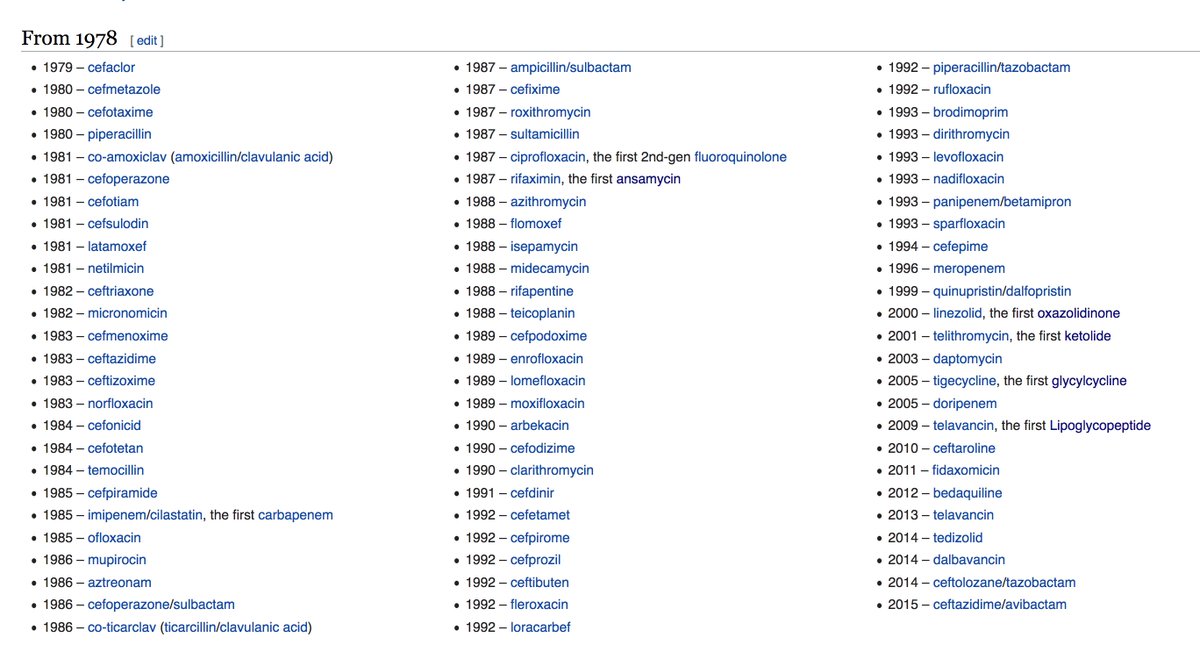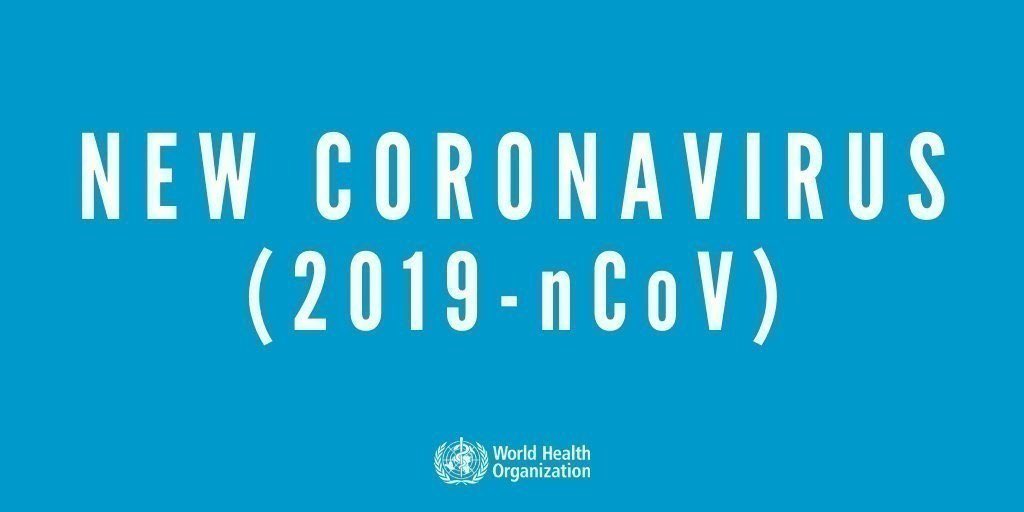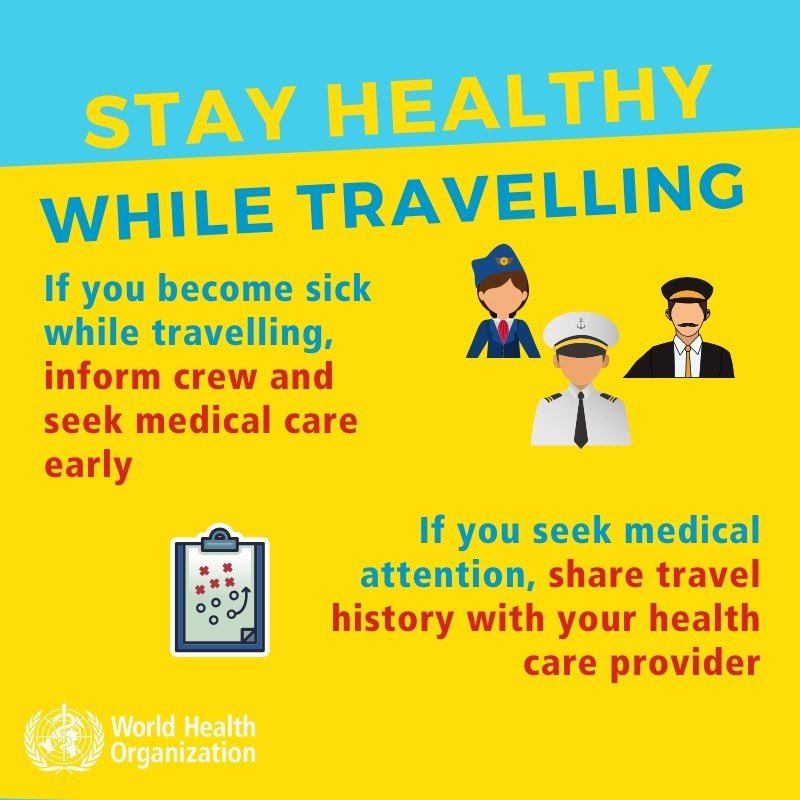The concern is that it could be something like the 1918 influenza pandemic (aka the “Spanish Flu”).
It's the huge spike on this chart of US mortality rates:
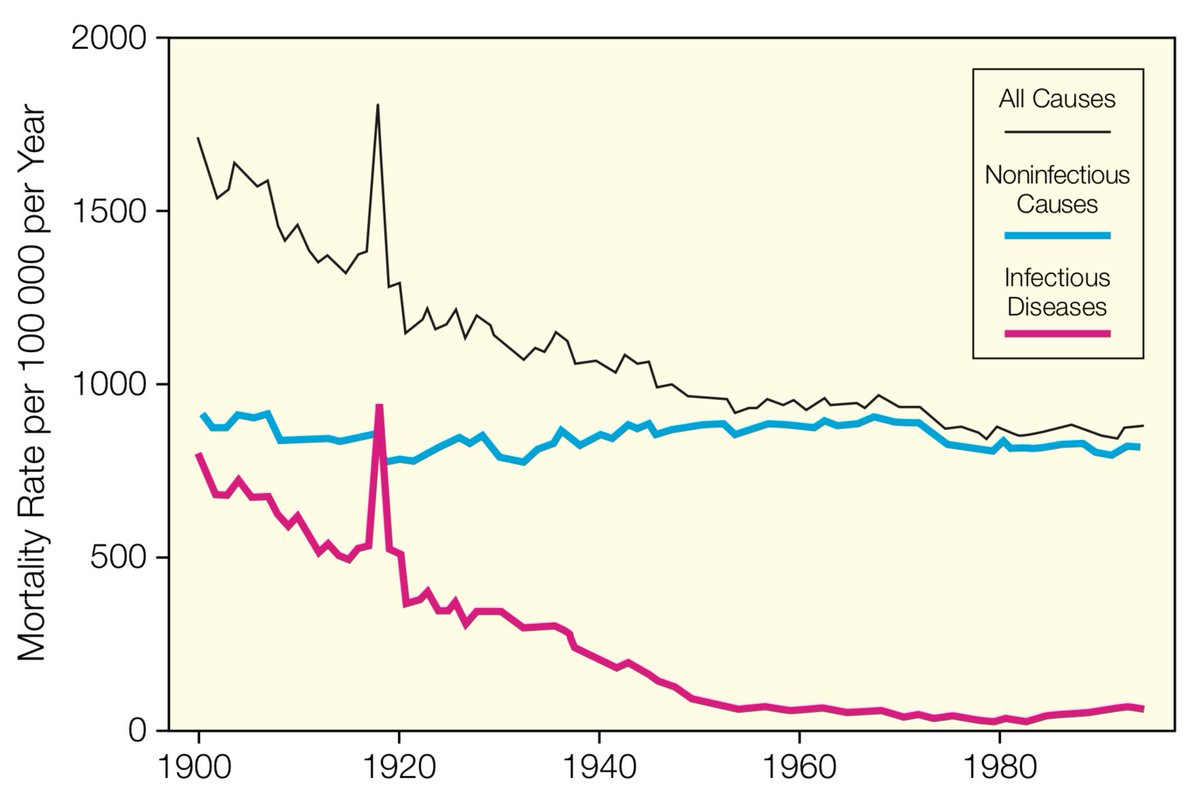

I am *not an expert* on these matters, and our knowledge on this is evolving rapidly, but here's what I understand so far:
worldometers.info/coronavirus
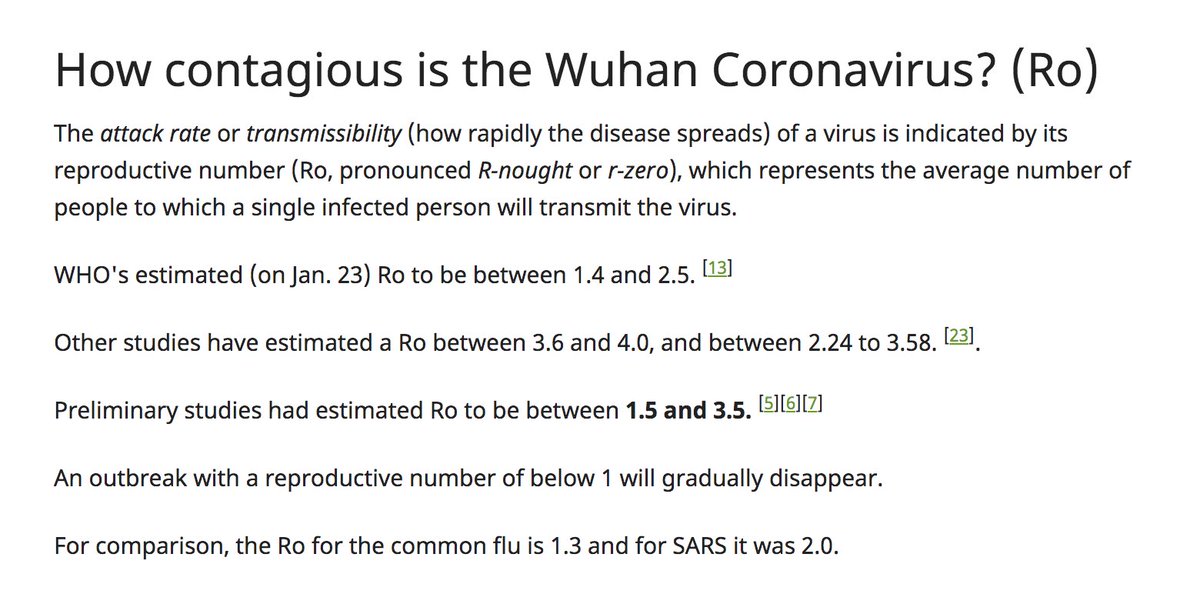
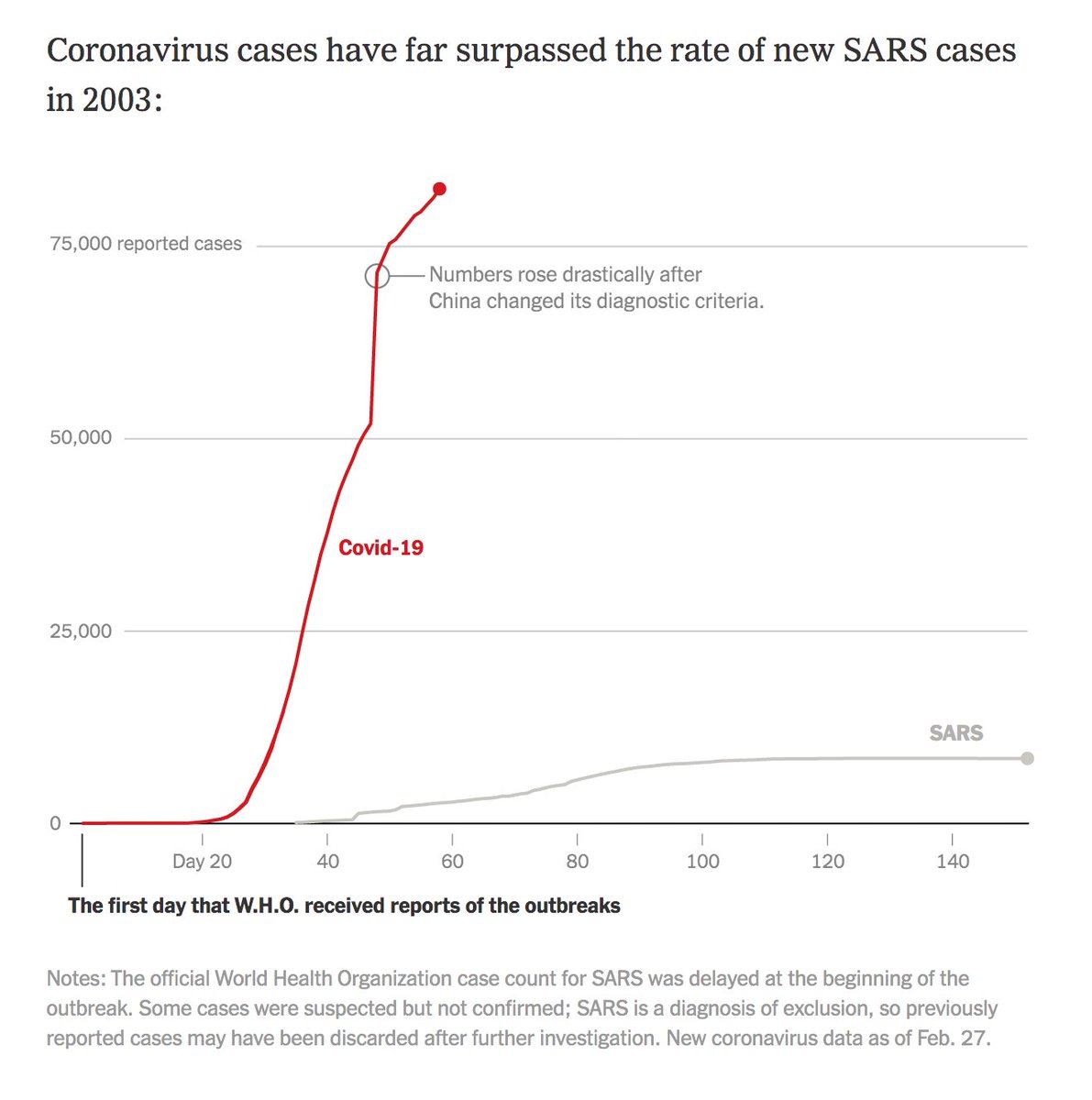
Unfortunately, thanks to mistakes at the CDC and a tangle of FDA regulations, the US isn't testing many people at all right now.
This has to get fixed—and fast.
worldometers.info/coronavirus/co…
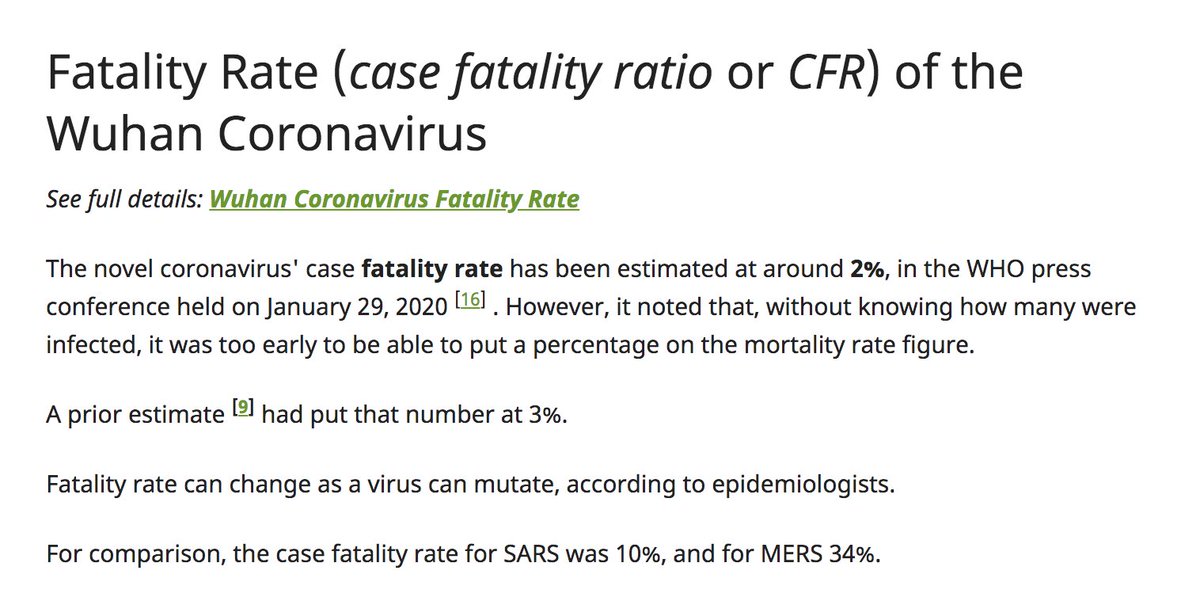
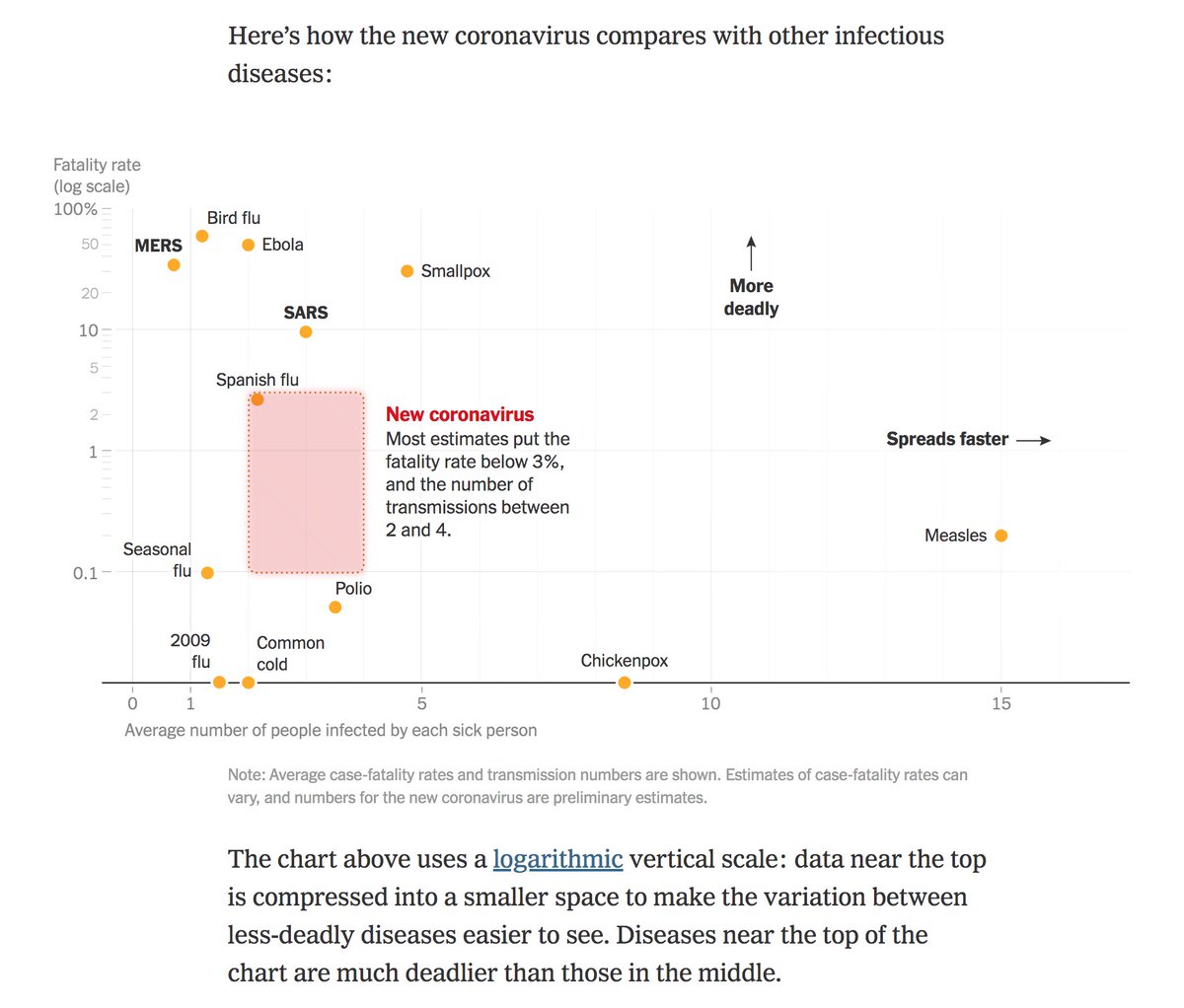
Back in 1918, we barely knew what viruses *were*. We didn't understand RNA/DNA, and we didn't have any microscopes powerful enough to see them.
• Genetic sequencing to understand the virus
• Statistical methods and software packages to analyze the data
• Global communications to coordinate response
• Mass manufacturing of sanitizers, etc.
1. Don't panic
2. Wash your hands; don't touch your face
3. Postpone meetings, or video chat
4. If you can't do (3), at least no handshakes
5. If you can't do (4), do (2) right after
6. Buy a few weeks of grocery/drugstore items now to allow (3)
@ScottGottliebMD for authoritative, informed statements
@balajis for being early and for lots of intelligent discussion
@chr1sa for daily updates on statistics
twitter.com/i/lists/123343…
Stay safe out there, everyone! And if you see me—wave or fist bump, OK? 👊
We don't have either right now.
But that's hard to talk about.
Probability distributions are hard to grapple with.


